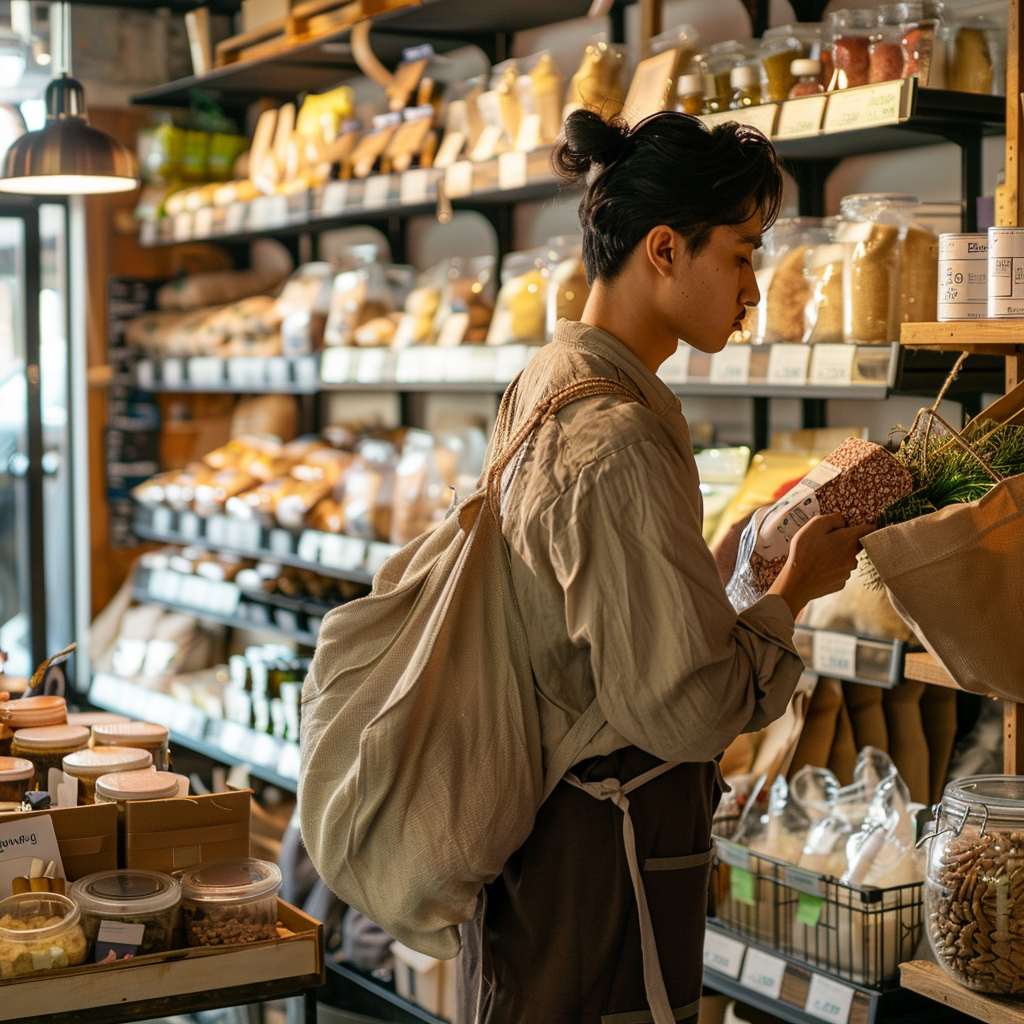1. Start with a Waste Audit: Understanding Your Habits
Before diving into changes, it’s essential to understand where your waste comes from. A waste audit helps you identify what you’re throwing away most often and highlights areas where you can reduce waste.
-
How to do a waste audit: Collect all your waste for a week and categorize it—paper, plastic, food scraps, etc. This will give you a clear idea of the types of waste you produce. Are you using a lot of single-use plastics? Is food waste a major contributor? Understanding your waste will help you target specific areas for improvement.
-
Set realistic goals: After your audit, choose one or two categories to focus on first. For example, if you notice lots of single-use plastic packaging, start by reducing that. Focusing on one area at a time makes the transition less overwhelming.
2. Swap Single-Use for Reusable: Small Changes with Big Results
One of the easiest ways to reduce waste is by swapping single-use items for reusable alternatives. Not only do these swaps cut down on waste, but they also save you money in the long run.
-
Reusable bags and containers: Keep a set of reusable shopping bags, produce bags, and containers with you for groceries and takeout. This simple habit can drastically cut down on plastic waste.
-
Reusable water bottles and coffee cups: Carry a reusable water bottle and coffee cup with you to avoid buying bottled water or using disposable cups. Many cafes even offer discounts for bringing your own cup!
-
Ditch plastic wrap: Switch to beeswax wraps or silicone food covers for storing food instead of plastic wrap. These options are reusable, easy to clean, and just as effective.
3. Buy in Bulk and Shop Local: Reduce Packaging Waste
A significant portion of household waste comes from packaging. By making conscious shopping choices, you can reduce this waste without making your life more complicated.
-
Buy in bulk: Purchase items like grains, pasta, and spices in bulk, using your own containers or bags. This eliminates the need for packaging and often saves money.
-
Shop at farmers’ markets: Local farmers' markets often sell produce without plastic packaging. By shopping locally, you reduce packaging waste and support small businesses at the same time.
-
Opt for package-free stores: If you have access to zero-waste or refill stores, bring your own containers and stock up on household essentials like cleaning products, shampoos, and detergents.
4. Reduce Food Waste: Plan, Store, and Compost
Food waste is one of the biggest contributors to landfills, but it’s also one of the easiest areas to tackle in a zero-waste lifestyle.
-
Meal planning: Plan your meals ahead of time to buy only what you need. This prevents food from going bad and reduces impulse purchases that might lead to waste.
-
Store food properly: Proper food storage can extend the life of your groceries. Use glass containers, mason jars, or reusable silicone bags to keep food fresh for longer.
-
Compost food scraps: Composting is a great way to reduce the amount of food waste that ends up in landfills. If you don’t have a garden, try indoor composting methods like Bokashi or vermiculture (worm composting), which work well in small spaces.
5. Embrace DIY: Make Your Own Zero-Waste Products
Many household products can be made at home with natural ingredients, which reduces packaging waste and can even save money.
-
DIY cleaning products: Many zero-waste enthusiasts make their own cleaning solutions with simple ingredients like vinegar, baking soda, and essential oils. These are eco-friendly, cost-effective, and just as effective as store-bought cleaners.
-
Personal care products: Consider making your own lotions, lip balms, and deodorants with natural ingredients. Not only are these products gentler on your skin, but they also cut down on plastic packaging.
-
Repair, don’t replace: When something breaks, consider repairing it rather than replacing it. From clothes to electronics, repairing items helps reduce waste and prolongs their life.
6. Unique Insights: The Mental Shift to a Zero-Waste Lifestyle
One of the most significant challenges of adopting a zero-waste lifestyle is shifting your mindset. It’s not just about physical changes but also changing the way you think about consumption.
-
Progress over perfection: It’s easy to feel guilty about the waste you still create, but remember that every small change makes a difference. Focus on progress, not perfection.
-
Celebrate small wins: Every step you take toward reducing waste is a victory. Whether it’s switching to reusable products or starting to compost, celebrate the positive impact you’re making.
-
Educate yourself and others: Learn more about the zero-waste movement and share your journey with friends and family. The more people you inspire, the bigger impact we can have collectively.
Conclusion: Start Small and Build Momentum
Starting a zero-waste lifestyle doesn’t have to feel overwhelming. By focusing on small, actionable changes—like using reusable bags, reducing food waste, and making your own products—you can build momentum and gradually reduce your environmental footprint. Remember, it’s not about being perfect. Every step you take toward zero waste is a step in the right direction.
















